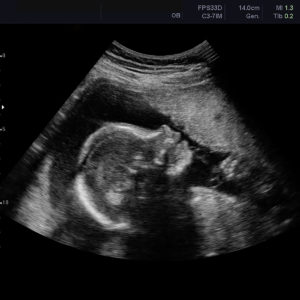By Althea Ansah
There’s a bill (HB 625-FN) currently before the House that would protect the lives of New Hampshire’s preborn babies after 24 weeks, the point in their development where we know they will likely be able to survive outside the womb. I’m currently a senior at the University of New Hampshire (UNH) and also serve as president of UNH Students for Life, an organization that promotes respect for humans at every stage of life. I testified at the Judiciary Committee hearing and was thankful for that opportunity. I also heard others testify that day, many who held the view that there should be no restrictions on terminating an infant’s life in the womb.
I once thought the same. When I was in high school, I learned about feminism. I completely supported it, especially the idea of being a strong, empowered woman. I learned being a feminist is to be supportive of abortion, so at first, I was too. But something just wasn’t making sense to me. I had questions. When does life begin? What is the impact of abortion on women? How is it done? I started researching to learn just what I was talking about.
I found abortion isn’t a harmless or “relatively safe” procedure for the mother. There is plenty of research showing it not only terminates the life of a developing (or fully formed) human but has real health risks for women and even their future “wanted” children. There are psychological and physical consequences as well, including Post Abortion Syndrome (PAS), substance abuse, and even suicide. This is an invasive medical procedure and, despite what we’re told, women do suffer complications, not only immediately after the abortion but later in life including a greater risk of breast cancer, miscarriage, and premature delivery. Women even die.
When I researched fetal development, I looked at photos of babies in their mothers’ wombs. I saw the fingers and toes and fluttering hearts of babies just weeks old. When it came to the actual abortion method, it became too real. However it was done – suction or evacuation, those little babies were being torn apart. “No,” I thought. How could this be healthcare? After learning the truth, I did a complete 180.
I found that abortion directly targets people of color like me. The Guttmacher Institute, which is affiliated with Planned Parenthood, tells us the rate of abortion for Black women is five times greater than that of White women. Why is that? And why does Planned Parenthood have 79 percent of its abortion facilities in minority neighborhoods? I know this. Margaret Sanger, the founder of Planned Parenthood, was a racist and eugenicist who didn’t value the lives of Black people. Abortion is not empowerment, it’s victimization.
In my testimony before the Judiciary Committee, I pointed out New Hampshire is one of only a few states in the country that allows for abortion at any point for any reason and one of three states that keep no statistics. Abortion “clinics” aren’t even regulated or inspected. New Hampshire does offer many more healthcare clinics that provide care for women and their babies than abortion-focused facilities. Why not fund those?
My parents came to this country from Ghana for a better life, and I was born and have lived all my life in New Hampshire. I want to stay and work here. And yes, I’m a Christian, but this isn’t about my faith. It’s about health and protecting human life. I’m graduating from UNH with a dual major in nutrition and wellness and eco-gastronomy. I hope to use that education to empower individuals in their own wellness, so we can build healthier communities. I hope others agree that it’s right for the health of our state and people to finally pass some common-sense legislation that would at least guard the lives of our preborn against being ended by late-term abortion. If you do, please let your representatives know.
Althea Ansah is a senior from Hooksett studying at the University of New Hampshire




